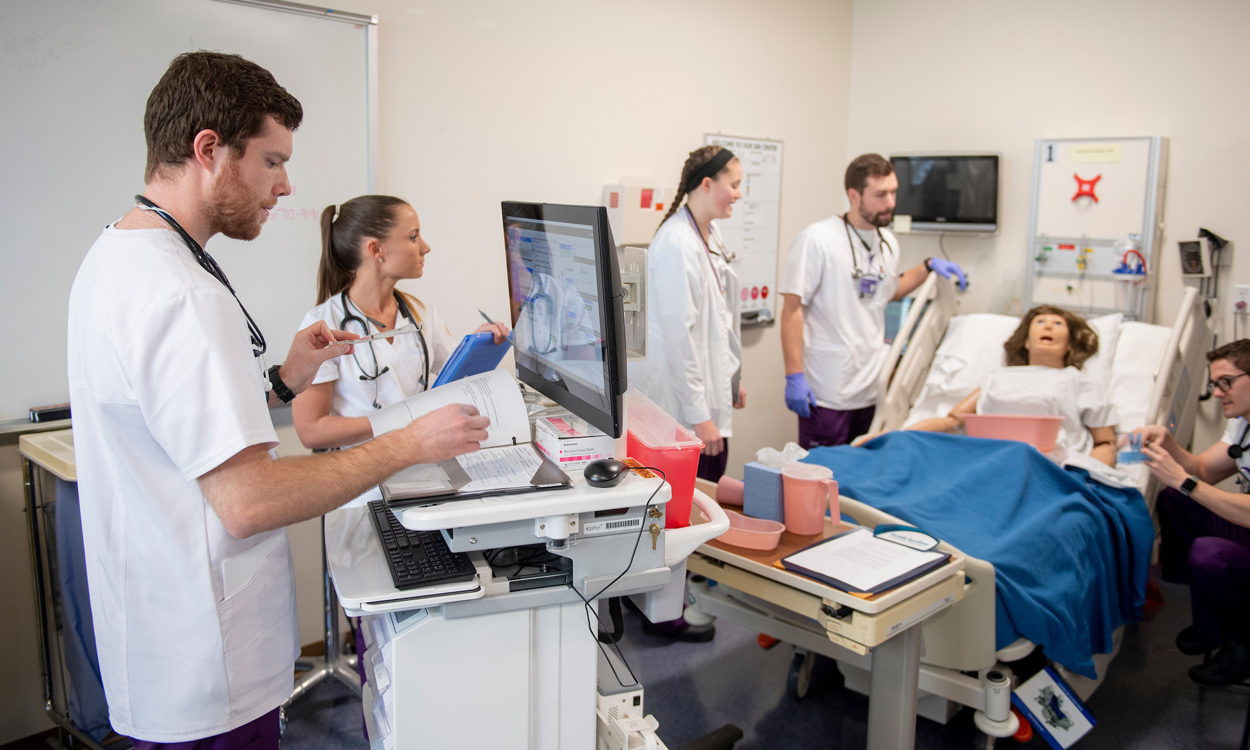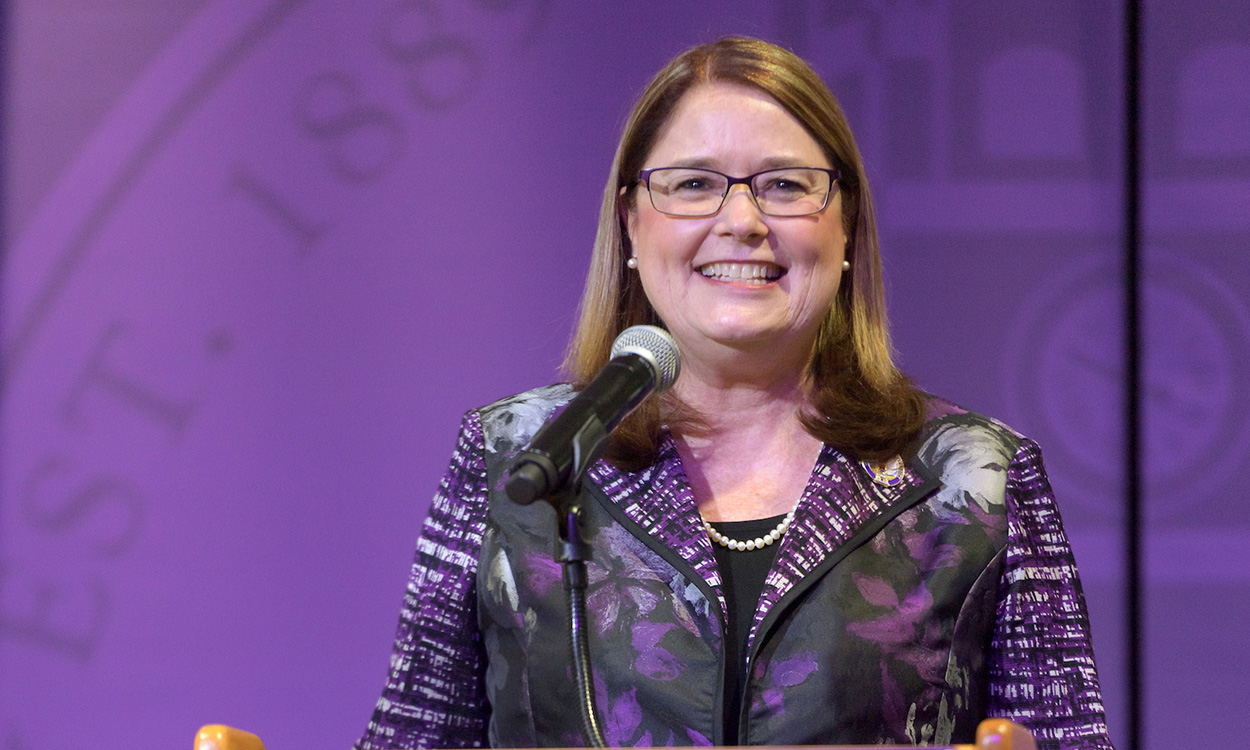Partnership will fund faculty position at WCU to help educate more nurses
By Tom Lotshaw
In a partnership announced on Tuesday, May 24, Mission Health will fund a full-time nursing faculty position at Western Carolina University and two area community colleges to help each of the schools serve more students who want to become nurses.
The Mission Health partnership with WCU, Asheville-Buncombe Technical Community College and Blue Ridge Community College starts this fall and is meant to help address nursing staffing shortages. The partnership with WCU will be in place for five years.
“We’re excited about this opportunity to work with a clinical partner to impact health care in the region,” said Lori Anderson, dean of the College of Health and Human Sciences at WCU. “It’s going to take all of us working together to overcome the area’s critical nursing shortage and Western Carolina University, as the region’s public comprehensive university, is glad to work with Mission Health and with other clinical partners to expand the pool of highly qualified nurses available to work and stay in Western North Carolina.”
The three nursing faculty positions that Mission Health is funding means 10 additional students will be able to enroll in nursing programs at each of the schools each year over the course of the partnership.
WCU will use the faculty position for its Accelerated Bachelor of Science in Nursing program at the Biltmore Park instructional site in Asheville, increasing the number of applicants it accepts each year from 45 students to 55 students. The accelerated program serves students who have a bachelor’s degree in another field and allows them to become registered nurses in as little as 16 months. The first additional nursing students accepted by WCU under this partnership could graduate and enter the workforce by December 2023.
Because of a shortage of faculty and budgetary constraints, WCU must often turn away one or two highly qualified applicants for every nursing student it accepts, said Terri Durbin, director of the School of Nursing. “A nursing faculty shortage is exacerbating the nursing shortage and we’re looking at lots of different avenues for increasing the number of faculty. Partnerships like this are a good example of that type of collaboration,” Durbin said.
WCU is not alone in that ongoing challenge. U.S. nursing programs turned away tens of thousands of qualified applicants in 2019 because of insufficient numbers of faculty, clinical sites, classroom space, clinical supervisors or budget constraints, according to the American Association of Colleges of Nursing.
“As we face the many challenges in healthcare staffing, we are looking for creative solutions to strengthen the partnership with our local schools,” Fran Paschall, the chief nursing executive at Mission Health, said in a statement announcing the agreement Tuesday. “Funding a role at each of these schools is one of the steps we are taking to help relieve the nursing shortage and help qualified applicants to attend our local schools.”
For more information on School of Nursing opportunities, visit nursing.wcu.edu.

